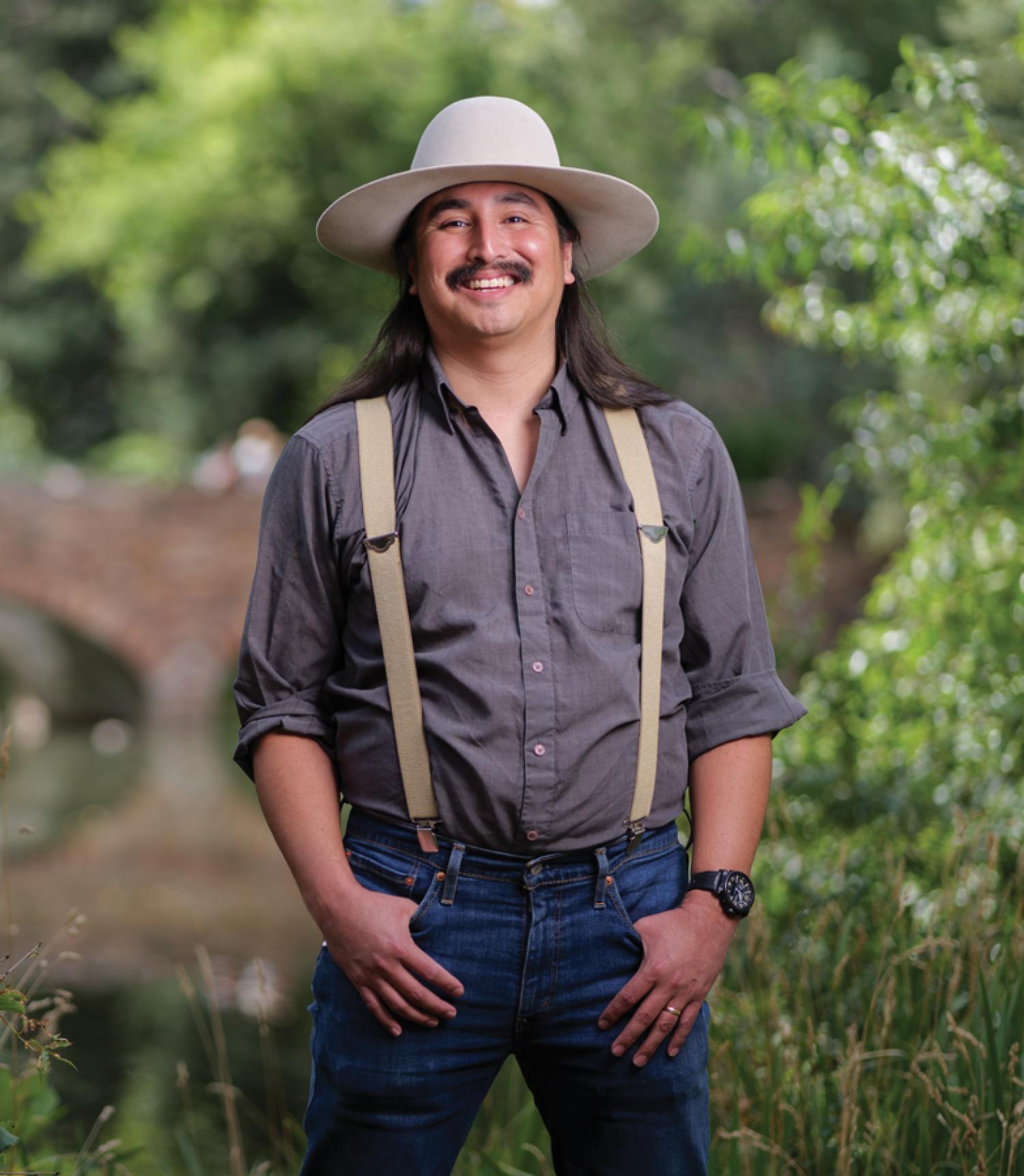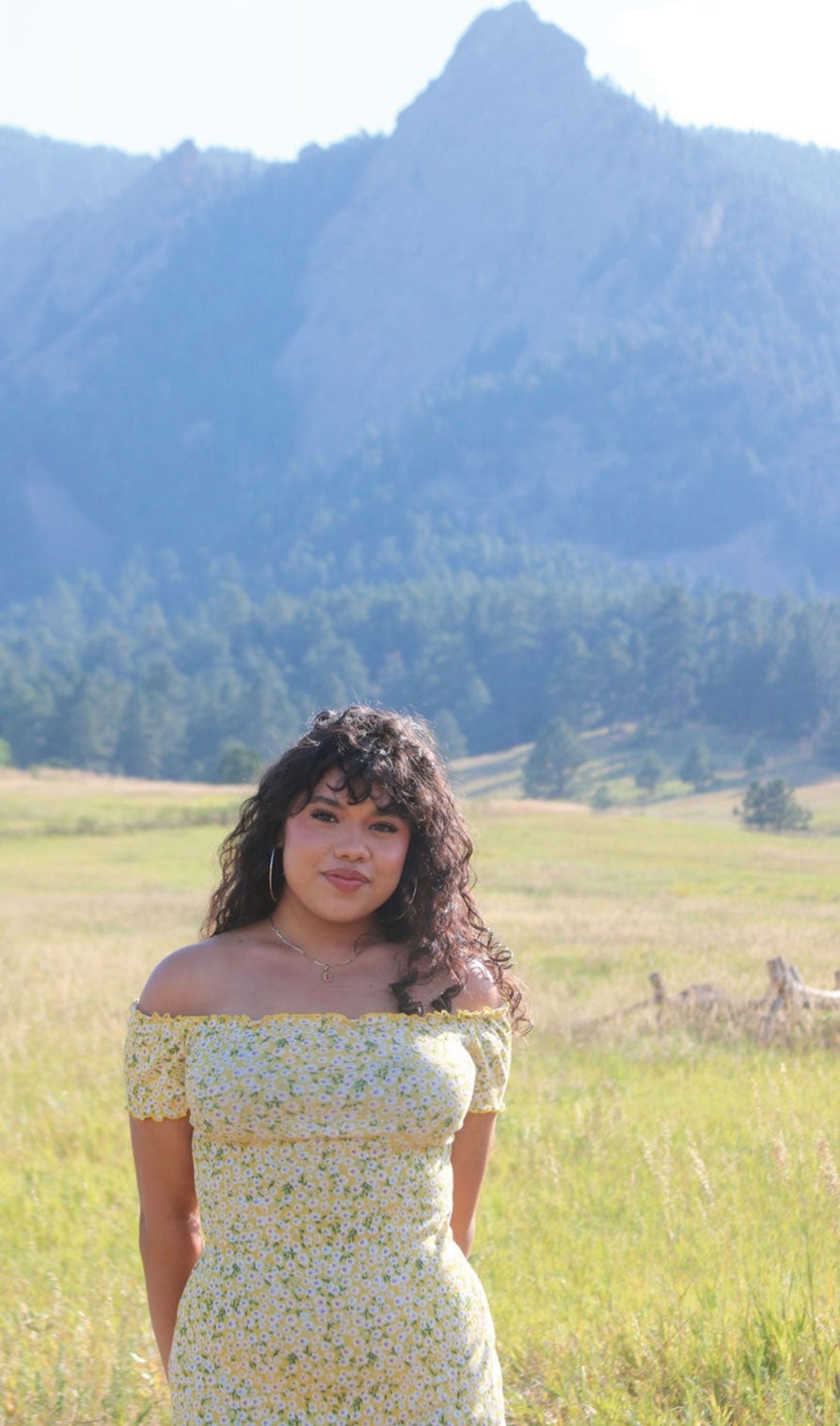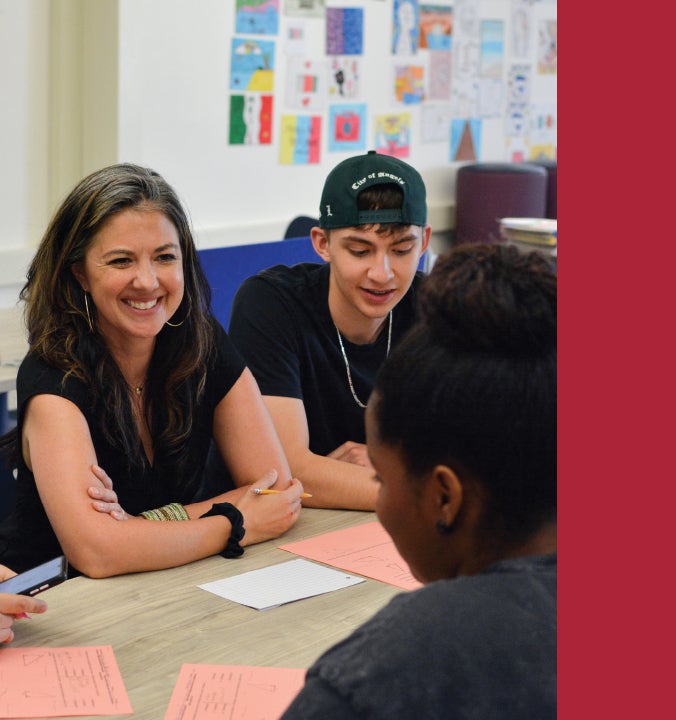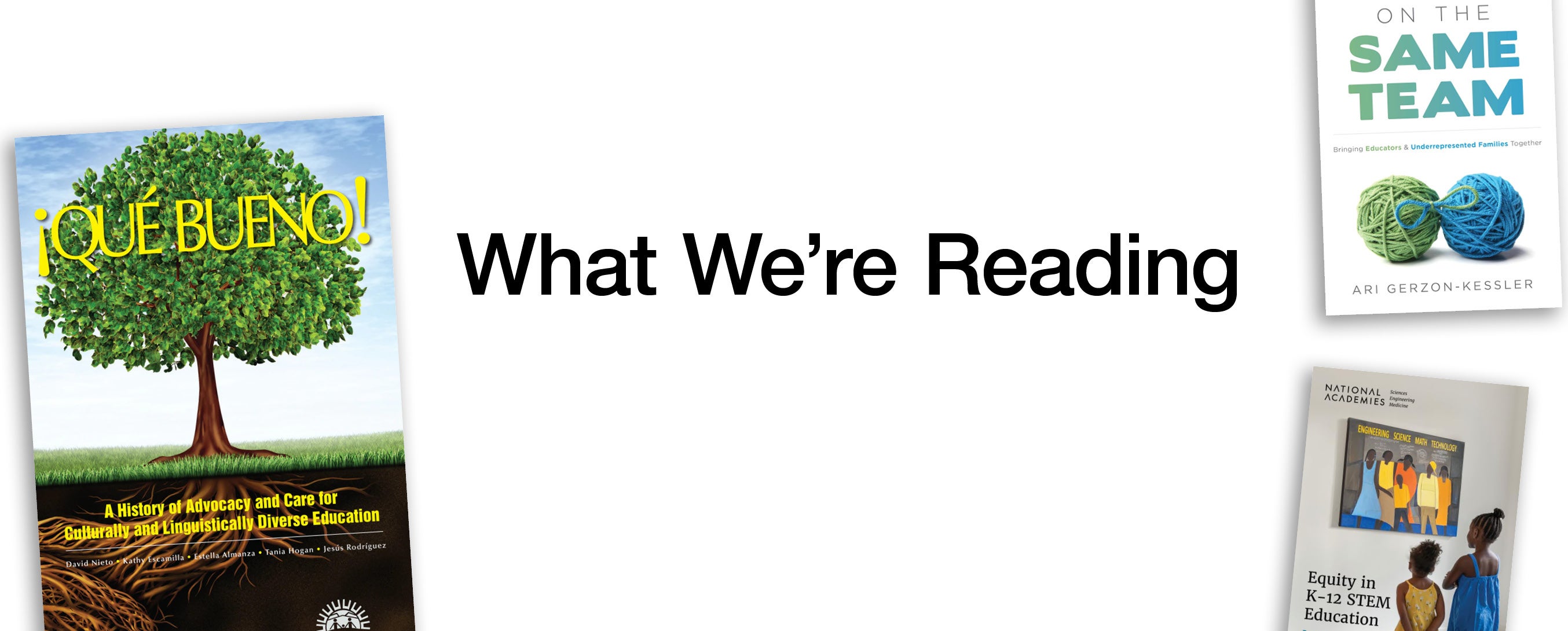Cracking the Code
Ian Her Many Horses is creating novel spaces for Indigenous students to explore computer science
For Ian Her Many Horses, the “a” in A.I.—artificial intelligence—may as well stand for “audacity.”
“We have the audacity to believe high schoolers can build A.I. tools,” he said. “There’s only a handful of groups that are seriously doing A.I. education in this way, where students get in there and build stuff.”
For the past three summers, Her Many Horses and partners—Mason Grimshaw, Michael Running Wolf, Andrea DelgadoOlson, Shawn Tsosie and Caroline Running Wolf—have created a space for Indigenous youth to tap into computer science and cultural knowledge at the Lakota A.I. Code Camp.
An assistant teaching professor of STEM Education, Her Many Horses is the camp’s lead curriculum developer, though he underscores it’s a group effort.
“For the work that needs to be done for Indigenous communities, we need people from Indigenous communities to do it,” he said.
The three-week camp is hosted at Black Hills State University in South Dakota, about 220 miles west of the Rosebud Reservation, where Her Many Horses grew up and was a teacher.
Her Many Horses got his degree in computer science and teacher licensure from CU Boulder in 2006 and his PhD in education in 2016. He worries that Indigenous representation in computer science nationwide remains sluggish. He is one of just three computer scientists from his reservation, and only 0.1 percent of computer science doctoral degrees are awarded to Indigenous graduates, according to the 2023 Computing Research Association survey.
Her Many Horses admits his journey is the exception, not the rule, and that change “There’s only a handful of groups that are seriously doing A.I. education in this way, where students get in there and build stuff.” is needed. As a young person, he had an early interest in computers, and his family always had a home computer. As a high schooler, he created a website devoted to his passion at the time, Godzilla.

Lakota A.I. Code Camp offers similar opportunities for young people, and it exposes them to careers in advanced technology. New this year, the camp was followed by a professional development workshop for Indigenous educators to potentially scale-up the approach.
“This is not school,” Her Many Horses said. “We don’t have tests or quizzes. We build them (students) up: ’You’re here to learn, and learning sometimes is failing. But it’s okay to fail as long as we’re here to catch you.’”
“We build a community of folks willing to learn and help one another to learn. When you take out grades and high stakes, what they come out with is meaningful.”
During the camp, students learn from renowned ethnobotanist Linda Black Elk, who leads nature walks and shares traditional knowledge about local flora and terminology in Lakota. From the data collected, students build an app and an archive of cultural knowledge.
Too often, Indigenous populations do not have control over their own data, not to mention their land, language, art and more, but the code camp emphasizes sovereignty.
“Data sovereignty is something we take fairly serious,” Her Many Horses said. “They go out and collect data on plants. Our organization does not claim ownership over that data—it’s theirs.”
There’s only a handful of groups that are seriously doing A.I. education in this way, where students get in there and build stuff.”
— Ian Her Many Horses
As faculty, Her Many Horses hopes CU Boulder can create opportunities for Indigenous learners because of where campus is located, and, frankly, room for growth in supporting diverse and Indigenous students.
Her Many Horses often works with math teacher candidates through the school’s renowned CU Teach program, of which he is a co-director. His long-term vision includes a computer science teacher track—beyond math—that pushes the bounds of teacher education so that students from historically underrepresented communities can lead in an increasingly tech-driven world.
“Computer science is in every discipline,” he said. “Across the board in K-12, the world has moved too fast for us to catch up, and it won’t catch up until folks talk about (computer science) within their disciplines. That’s a slice of the world that’s becoming bigger, and students need opportunities to be let in.”
Discover more stories from Voices vol. 7:
Revolutionary Love
CU Engage student Fernanda Cerros receives President’s DEI Award for impactful work
Meeting the Moment
How educators are addressing the needs of “newcomer” students
What We're Reading
A quick look at the recent books from our faculty and alumni community




